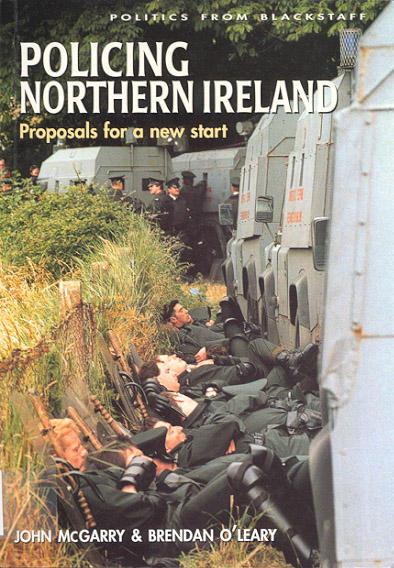
The Celtic League has reiterated its concerns, first voiced in 2008, over the use of military forces to assist the police.
In August/September 2008 units of the Irish Naval Service were deployed to Broadhaven Bay, Co Mayo, were protests against a proposed gas pipeline were ongoing. The Irish government said at the time that its domestic legislation allowed for the use of military forces in such circumstances.
Recently the Council of Europe Police and Prison `watchdog' the CPT has published concerns (in relation to policing in Northern Ireland) over military involvement in policing roles.
The League have urged the Council of Europe to ensure that guidance in relation to the disproptionate use of military forces in police roles is applied equitably in respect of both the six counties of Northern Ireland and also the 26 counties currently administered by the Dublin government
CoE correspondence below:
"The Rt Hon Thorbjørn Jagland Secretary General Council of Europe Avenue de l'Europe 67075 Strasbourg Cedex
09/01/10
Dear Secretary General,
You will recall our correspondence to your predecessor Mr Terry Davis in September 2008 relating to the deployment by the Irish government of military forces to assist in the policing of a civil protest at Broadhaven Bay, Co Mayo.
At the time the Irish government indicated to us that this use of military forces to assist the police was allowed for in domestic legislation.
I am aware that in a recent report prepared by the Committee for the Prevention of Torture (CPT), following a periodic visit to the United Kingdom, on Police procedures in Northern Ireland criticism of the use of military forces in a civil policing role is aired.
In para 120 of its report the CPT say
"In respect of offences of a terrorist nature, the Northern Ireland (Emergency Provisions) Act 1996 had been repealed and replaced by the Terrorism Act 2000 (see paragraph 9). Furthermore, the 2007 Justice and Security (Northern Ireland) Act contains provisions that deal exclusively with offences designated as acts of terrorism. This latter Act also empowers members of the Armed Forces to stop, arrest and detain, for a maximum of four hours, persons[44] suspected of involvement in any offence, not just terrorism-related offences. The delegation was told that, to date, the Armed Forces had not made use of these powers, and it did not meet any person claiming to have been subjected to them.
Nevertheless, in general, the CPT prefers law enforcement tasks to be carried out by well trained and properly equipped civilians rather than by members of the Armed Forces. The CPT would like to be informed of the reasons for giving such law enforcement powers to the Armed Forces, as well as the arrangements currently in place in this respect."
The CPT seem to aver that even in situations involving alleged terrorist offences it is desirable for a clear separation between civil policing and military involvement.
I do not need to remind you that in relation to the situation in Co Mayo in 2008 we were not dealing with terrorism or even serious crime but civil protest.
In the circumstances and in light of the CPT's very clear statement will the Council of Europe make clear to the Irish government that the use of military forces to police civil protest is unacceptable in a European democracy and signatory of Council of Europe treaty's on Human Rights?
We agree wholeheartedly with the CPT's concern over the use of military forces in a policing role in the six counties of Northern Ireland and it would seem equitable that the same criteria should apply in the 26 counties administered by the Dublin government.
Yours sincerely,
J B Moffatt (Mr) Director of Information"
Earlier Link with correspondence here:
J B Moffatt Director of Information Celtic League
10/01/10
- Emmanuel Grégoire et l’abbé Macron par David Grosclaude le 23/11/2024
- Pays de Redon. La Bogue d’or, rendez-vous du « génie populaire » par Le blog de paul Molac le 05/11/2024
- Catherine Vautrin en Corse : Régions et Peuples Solidaires appelle l’Etat à enfin aboutir sur l'autonomie par RPS le 25/10/2024
- Gouvernement Barnier : des nominations inquiétantes par RPS le 24/09/2024
- Quelle future gouvernance en France ? par Marcel Berrou le 08/07/2024
- Après deux cycles de trois ans du Parlement de Bretagne réveillé, voici venir le troisième cycle ! par KAD le 01/07/2024
- Résolution pour la Réunification de la Bretagne à la XIXème Assemblée Générale de l'UNPO à Munich, les 11 et 12 mai 2024 : par KAD le 07/05/2024
- TER Nouvelle Aquitaine : quelle honte ! par David Grosclaude le 18/04/2024
- Les Braises de la Rencontre, le 5 mai 2024, sur le parc de sculptures mémorial de MAB Koad Sav Pell ! par MAB, Musée Archipel Breton le 16/04/2024
- Koun Breizh s’indigne : Non ! les festoù-noz ne sont pas des lieux réservés aux « attardés » ! par Koun Breizh - Bertaign Tenant - Mémoire-de-Bretagne le 07/01/2024
 The Celtic League has branches in the six Celtic Countries. It works to promote cooperation between these countries and campaigns on a broad range of political, cultural and environmental matters. It highlights human rights abuse, monitors all military activity and focuses on socio-economic issues.
TEL (UK) 01624 877918
MOBILE (UK)07624 491609
(voir le site)
The Celtic League has branches in the six Celtic Countries. It works to promote cooperation between these countries and campaigns on a broad range of political, cultural and environmental matters. It highlights human rights abuse, monitors all military activity and focuses on socio-economic issues.
TEL (UK) 01624 877918
MOBILE (UK)07624 491609
(voir le site)
